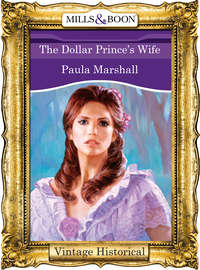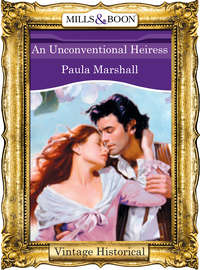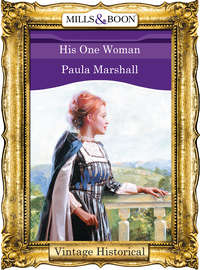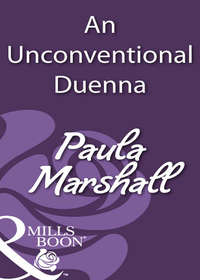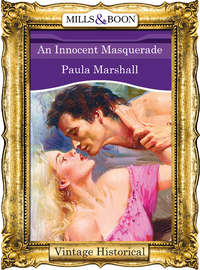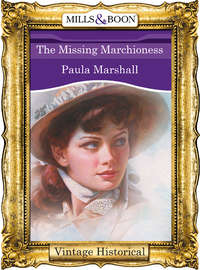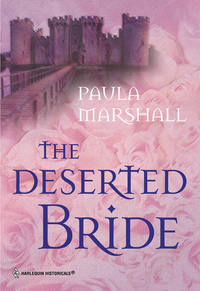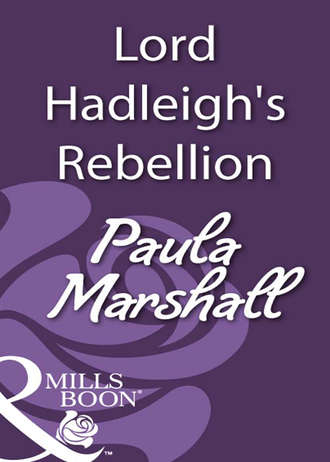
Полная версия
Lord Hadleigh's Rebellion
‘Did he really mean that?’ asked a baffled Angelica when Russell and Mary had disappeared through the door. She was the only one who had heard Russell’s reply to Mary. Fortunately, she had not heard Mary’s remark which had provoked it.
‘Mean what?’ asked Perry, who was now fuddled in a double sense. Firstly through the amount he had drunk and secondly through Russell’s nonsense about painting and artists.
‘About Mrs Wardour instructing him.’
Perry shook his head—and then wished he hadn’t. He thought that it might be about to fall off. The Hon. Tom, who was uneducated, but not a fool, said slowly, ‘He didn’t mean any of it. He was roasting us.’
‘Was he, by God!’ exclaimed Perry making a staggering run for the door. ‘I’ll teach him what’s what and no mistake.’
‘No, you won’t,’ said the Hon. Tom. ‘In the condition you’re in he’d make mincemeat of you. They say he’s as good with the gloves, the foils and the pistols as that brother of his. Besides, you’d only be proclaiming that he’d riled you. Refuse him the satisfaction. What’s more, your pa wouldn’t like it.’
‘Pa never likes anything Perry does,’ offered Angelica helpfully.
‘There!’ said the Hon. Tom. ‘Leave it. You’ll have forgotten everything by morning, I dare swear.’
‘He always has done before,’ was Angelica’s brutal finale to the whole unhappy encounter. Did they really want her to marry someone who spent his time admiring paintings?
Which, if Mary and Russell had heard her, would have had them agreeing that it was the most sensible thing anyone by the name of Markham had said, or thought, all night!
‘That was really exceedingly naughty of you,’ Mary told Russell reprovingly, once they were safely out of the picture gallery. ‘You must have gathered by now what a nodcock Perry Markham is, but there was no need to have made a fool of him quite so mercilessly.’
‘No?’ replied Russell, haughty eyebrows raised. ‘He began the whole wretched business by jeering at me and mocking me, most mercilessly, after dinner for not wishing to see that poor wretch hanged tomorrow. I was only giving him a taste of his own medicine—and before two others, not before the entire assembled men of the company. I consider that he got off lightly—but I promise not to do it again if it distressed you.’
‘And you really are not going to watch the hanging tomorrow?’
‘By no means. I take no pleasure in behaving like the ancient Romans in the Colosseum who cheerfully watched gladiators slaughter one another, even if I do admire their architecture and their writings. By the by, I hope that none of the ladies will be in the party, although I suspect that quite a number of women will be present.’
Mary shuddered. ‘It is bad enough speaking about it without being there. Will all the men be going?’
‘Most, I suspect. But let us speak of more pleasant things before we rejoin the others.’
‘Indeed. There is one question which I should dearly like to ask you, and that is, did you ever meet Lord Byron before he started out on his travels again?’
‘Several times. I heard him make his speech in the Lords on behalf of the hand-loom weavers who were losing their livelihood because of the new machines. I thought it very fine. I also think it is a great pity that he never bent his energies more towards politics than pleasure. After all, he is his own man, unlike others who have their choices made for them. I agree that he writes some immortal poetry, but his private life of unbridled pleasure does not bear inspection. I gather that now he is in Europe he still mixes writing divine poetry with living a sybaritic life.’
How easy, Mary mused later, while retiring for the night, it had been for them to fall back into the half-serious, half-jesting mode of conversation which they had enjoyed before their affair had come to its sorry end. There was no doubt that their minds worked in harmony. Earlier that evening Miss Truman had commented that Lord Hadleigh had the reputation of being a lightweight in life and love.
After talking with him again, Mary thought that she was wrong. She was, however, gaining the impression that something was awry in Russell Hadleigh’s life, and that he envied his younger twin, Ritchie, not only for his happy marriage but for having a settled aim and career. He must also have watched Ritchie achieve a certain amount of justly earned fame for his exploits as a soldier, leaving the Army with the rank of colonel and a reputation for courage and enterprise.
She shook her head. Why should she waste her time thinking about the problems of her one-time lover, however much, if truth were told, he still attracted her?
But the past was the past and must remain dead. A thought which she took to bed with her after reading a little of one of Mr ‘Monk’ Lewis’s lurid romances, a Tale of Terror called Feudal Tyrants. Mary had a passion for such novels, which had shocked her husband whose taste in literature was fixed on the arid and the philosophical. He considered it to be her one weakness.
Whether it was Mr Lewis’s vivid descriptions of past times which excited her brain, or whether it was meeting Russell Hadleigh again that did the damage Mary could not decide on the following morning. Whichever it was, during the night—was it in a dream?—she found herself walking in the gardens of her father’s home in Oxford. She was seventeen again and beside her was a handsome young man who had arrived that morning to be her father’s pupil.
Dr Beauregard was not one of Oxford’s official dons, but he was a mathematician with a European-wide reputation and it was a habit of some of the professors to send their brighter pupils to him for further training.
‘I am expecting a new young man this morning, Mary,’ her father had earlier told her, ‘so I am afraid that you must forgo your work with me today. Wilkinson thinks that he has a very good mind and would profit from spending some time in my company. What is surprising about him is that he is a young nobleman—it is not often that they display such rarefied talents, although one must not forget Henry Cavendish, of course.’
He was, Mary knew, referring to Henry Cavendish, the grandson of the second Duke of Devonshire, who had made some remarkable discoveries in chemistry.
‘No, Father,’ she replied, teasing him gently. ‘No, I promise not to forget Henry Cavendish.’
He fixed her with a stern eye. ‘See that you do not, my dear. Knowledge must always be treasured and never lost. The young man to whom I have referred is the heir of the Earl of Bretford. His name is Russell, Lord Hadleigh, so you must address him as m’lord. He has a courtesy Viscountcy, I understand. I think, that after I have assessed him today, it is likely that you may both profit from taking your lessons together with me. We shall see.’
Lord Hadleigh! What a delightful name. It was like those in the Tales of Terror which her father grudgingly allowed her to read. ‘All work and no play makes Jane a dull girl,’ he had said once.
Well, she wouldn’t be a dull girl with Lord Hadleigh as a fellow pupil—although whether she would enjoy taking her lessons with him was quite another thing! She had learned—to her distress—that if she ever told anyone, male or female, of any age, that her papa was teaching her advanced mathematics and that delightful piece of arcane mystery, calculus, they were sure to look at her as though she had sprouted two heads.
Aunt Charlotte Beauregard had once told her never, ever, to let any young man know how clever she was, for that was sure to end any chance of marriage for her. Years later, Mary learned that an extremely clever mathematician and geometer named Annabelle Milbanke had succeeded in marrying Lord Byron despite that; but since the marriage had proved to be an absolute disaster, perhaps Aunt Charlotte had been right.
At the time of Lord Hadleigh’s arrival, however, such warnings troubled Mary not at all. When their maid, Polly, arrived in her room to tell her that her papa wanted to see her in his study downstairs, Mary had run down eagerly, knocked on the study door and found her papa seated behind his desk. A tall young man was standing facing him.
He turned and bowed when Mary entered. She was immediately struck dumb at the sight of him. He was so extraordinarily handsome: a cross between the statues of the young Hercules and the God Apollo who stood in the entrance hall of the Beauregards’ home.
But Russell, Lord Hadleigh, possessed one great advantage over them: he was warm flesh and blood, not cold stone. He had fair waving hair—he had removed his mortar-board with its nobleman’s gold tassel when she had entered—and bright blue eyes above his classically handsome face.
Her father was saying something: introducing him, no doubt. Mary curtsied in a kind of daze. She thought that he was informing m’lord that he and she were to study together with him and, if so, how would she ever be able to say anything sensible before such masculine perfection?
It was almost as though he knew how overthrown she was, for he was saying in a voice as beautiful as he was, ‘I am delighted to meet your daughter, Dr Beauregard. It is rare to find such intellect as she must possess and such beauty combined in one person,’ and he bowed to her at the end of his speech.
‘No doubt,’ said her father drily, ‘but, if you are to study together, looks must give place to diligence and, dare I say it, inspiration. Mathematics needs that as much as poetry or painting.’
Lord Hadleigh nodded solemnly. ‘Indeed, sir, and it shall be a pleasure to try to discover it from your teaching.’
That was the beginning. Lord Hadleigh was to arrive on the following morning for an hour’s teaching for as many weeks as her father cared to instruct him. He was not so advanced as Mary was, but it was amazing, she thought, how quickly he caught her up. He did not pass her. They cantered together along the paths which earlier mathematicians had laid down for them. Isaac Newton was Dr Beauregard’s God. Once he had hoped to surpass him. Now he devoted his life to trying to find someone who might overtop even Newton.
The morning of Mary’s walk with Lord Hadleigh he had rubbed his eyes halfway through the lesson and exclaimed, ‘At the rate we are progressing I fear that the pupils may yet outclass the master. Perhaps that is not surprising: after all, Newton was a very young man when he had his most original ideas. Mary, my love, I grow tired. Take Lord Hadleigh on a tour of the gardens; by the time you return I shall doubtless be refreshed.’
When she recalled this detail of her dream Mary grasped, for the first time, that her father was beginning to succumb to the illness which was, in due course, to carry him away from her forever. In her dream, though, which was not really a dream but time recalled, she thought nothing of this, only that she would be alone with her new friend.
He was, however, already more than a friend. They had sometimes been playfully naughty in their supposedly serious discussions with her father. At first he had reprimanded them; later he had encouraged them, for in it he could see forming the inspiration which had left him, but which he hoped he was passing on to them. So, on that late spring morning, walking in the garden, something more than scholastic inspiration was beginning to pass between the pretty seventeen-year-old girl and the handsome twenty-year-old boy.
They walked down a pleached alley to a herb garden, where later all the scents of summer would fill the air, but which, like the pair of them at present, only offered hints of a beautiful maturity.
Lord Hadleigh duly admired everything, although an older Mary ruefully knew that her father’s garden was but a miniature of those gardens he must have known which surrounded his father’s great country houses.
They looked into one another’s eyes. Russell, for so she was coming to think of him, was not innocent. He had already learned the delights which came from pleasuring women—and being pleasured by them. But Mary was, and knowing that he went slowly with her. Not only had he no wish to seduce his tutor’s daughter, but he was beginning to care for her for her own sake. Such charming innocence, allied to such remarkable learning, was not to be besmirched. Both were to be respected.
So he sat by her on a rustic bench and they talked together of small things. She asked him what it was like to belong to a family since she was an only child whose mother had died young.
‘A large family?’ he replied, and there was a note in his voice similar to that which sounded when the older and more disillusioned Russell Hadleigh spoke of his brother and of his sister, long married to a Scots laird and long lost to him. ‘My father is not what is known as a family man, you understand. Ritchie and I were friends when we were boys, but he saw fit to part us when we grew older. Twins should not be over-dependent on one another, he said, but must learn to live alone in the world.’
‘I would wish to have had a sister, or a brother,’ she told him. ‘Someone to whom I could talk freely.’ She gave him a shy glance. ‘As freely as I find that I can talk to you.’
Something happened to Russell then, she was sure. For his face grew shuttered and what he then said surprised her at the time, although later she understood, or thought that she understood his unspoken meaning. ‘I do not wish to be your brother.’
This declaration, she remembered, saddened her a little at the time, but she continued to talk to him. He had a dog at home, he told her, one Rufus, which had grown old and which he had left behind when he came to Oxford.
‘Father will not allow me to have a dog or a cat,’ she said sadly. ‘He does not approve of pets. He calls it light-minded to wish for one.’
‘And you do wish for one?’
‘Yes, very much.’ She wanted to add, I should not feel so lonely, but thought that it might be weak-minded of her to confess such a thing.
‘If I were your papa,’ he said, smiling at her, ‘I would allow you to have any kind of pet you wanted. A bird, perhaps. Ritchie had a parrot until it died of old age. Being Ritchie, he taught it to speak a little.’
‘How kind you are,’ she told him, before looking at the little watch which hung from her waist. ‘I think that it is time that we returned. Papa considers punctuality to be one of the great virtues. He says that most females do not treasure it.’
‘Nor most males, either,’ returned Russell, which set her laughing and saying,
‘You see, that is what a kind brother would say.’
Mary did not remember exactly what had happened on that long-ago spring afternoon, only that it was the start of something which in the end became more than friendship, more than the love of brother and sister, but which ultimately became more powerful and dangerous than either.
Now, older and wiser, she contemplated the day ahead. The women of the party, deserted by their men, had arranged to visit a neighbour who had recently improved his gardens. Rumour claimed that they were magnificent, including not only a cataract tumbling down an artificial hill, but also not one, but three, follies.
I’m not really in the mood for follies, Mary thought. Instead I’ll cry off and spend a quiet day in the library with my chess set for company. I grow tired of female small talk. Once there she could hide away from everything, including a past whose happiness had not yet been touched by pain.
Chapter Three
Russell Hadleigh yawned and put down his book. The morning was not yet half-gone. He had arrived down to a late breakfast to find that, for once, the other men in the house party had forestalled him. They were all agog and all eager to be off to the hanging. Thinking of it certainly wasn’t putting them off their fodder, the Honourable Thomas told Russell a trifle gloomily.
‘Put you off yours, has it?’ asked Russell, contemplating the Honourable Thomas’s half-empty plate.
‘Doesn’t do to say so,’ was the rueful reply. ‘A fellow’s supposed to look forward to such things. I’d cry off if I could, but they’d all jeer at me for being lily-livered.’
‘Well, by that I am lily-livered,’ said Russell. ‘For, as you know, I’ve no intention of joining the party.’
‘Well, you’re Hadleigh, Bretford’s heir, and even if Perry does come on a bit strong with you, you’re grand enough to do as you please. I’m only a wretched younger son, tolerated because I’m one of the crowd who makes up the numbers. Doesn’t do to offend—though I suppose I might kick over the traces one day.’
Enter assorted gentlemen, thought Russell, remembering the instructions in various stage plays: courtiers and hangers-on of the great, the rich and the powerful. He shivered a little. I suppose that I have them, too—or would if I liked the notion of a crowd of sycophants walking around me all day. He disliked the thought: it was yet another thing which Ritchie didn’t have to trouble about since he was a younger son who did have money—but not enough to attract the parasites.
‘So there it is,’ moaned the Hon. Tom dolefully, adding another slice of ham to his plate. ‘What will you do while we are junketing?’
‘Read a little, walk a little, ride a little: admire the scenery.’
‘Leicestershire doesn’t have scenery,’ said the Hon. Tom. ‘It only has countryside. Countryside ain’t scenery.’
With this last remark he wandered off towards where Perry was holding court: something which he would not be able to do if his father were to be gazetted bankrupt.
Really, Russell thought gloomily, all that he was doing at Markham Hall was practising idleness in different surroundings from those he was used to.
His valet fetched him nuncheon some time after noon, and he ate it in his room, looking out over the park and towards some low hills in the distance.
I am becoming solitary. I think I’ll go and be solitary in the library.
Yes, the library was solitary. Not a soul was in it. It was a typical gentleman’s collection, he saw, his eyes roving along the shelves and his hands thrust in his pockets. He was bored with himself and, to that degree, was bored with life—until he reached the table in the window.
On it stood a small and exquisite chessboard, whose finely wrought miniature men were set out as though in the middle of a game. On one side of it was a pile of unused paper, on the other, another, smaller pile on which had been written lines of what appeared to be mathematical symbols.
Intrigued, Russell picked them up and studied them. It soon became plain to him, although it would not have done to many, that the symbols were the complete record of the game on the board until it had been abandoned for the time being.
The piece that was being studied on the last page was the white knight, and the calculations on the paper showed all the different consequences of moving it from its present position on the board—and the consequences for all the other pieces if each possible move it could make was analysed!
Russell could not prevent himself from picking up a clean sheet of paper and the pencil which had been left on the table and begin to list the further changes which followed on from those on the last sheet of paper. He was so absorbed in this task that he did not hear the door open and someone enter.
A cool voice said in his ear, ‘Pray, what are you doing with my work, m’lord?’
Russell started up. It was Mary standing beside him, Mary who had left the chessboard in the library, secure in the knowledge that no one would visit it, or, if they did, would stare goggle-eyed and uncomprehendingly at both the board and her papers.
‘Nothing,’ he said, his mind still on the ramifications of the latest move. ‘I am merely doing my own work—and not interfering with yours.’
She gave a little laugh which was neither kind, nor unkind, but neutral. ‘Then you haven’t forgotten our numbers since we worked together with my father.’
‘Indeed not, Mary, although I own I am a little rusty—but the rust is fast disappearing as I begin to work with them again. And pray call me Russell as you used to when we last played with numbers.’
‘I was not playing with numbers today, m’lord, I was working with them.’
Mary’s stress on the word m’lord was slow and deliberate. This troubled Russell not at all. Since he had sat down in front of the chess board something had happened to him, something which he had not felt for years. He felt not only liberated, but full of a sense of power, of achievement. The ennui which had marred his recent life had disappeared. He felt himself equal to anything.
‘Nor am I playing with numbers today, Mary. I am fascinated by what you have been doing, which is, I suppose, trying to work out a logical means of countering every move your opponent makes in a real game. That, if you could succeed, would be an achievement worthy of Newton or Pascal themselves. I have, in my own small way, been trying to see if I could join you in your exercise.’
His face was so eager, so alight with interest that for a moment time disappeared and they were boy and girl in her father’s study again. Time re-ordered itself, but the effect of that brief spasm was to set Mary answering him as she would have done then.
‘Perhaps you would allow me to examine your work, Russell?’
Russell! He had seen the slight quiver that had passed across her face before she answered him—and then she had called him Russell! He had said, or done, something which had unwittingly restored some of the rapport which they had once shared.
‘Willingly,’ he said, and handed her the sheets of paper which he had filled with his calculations.
Mary sat down beside him and began to inspect them. Presently she laid the papers carefully down on the table and looked at him for a long moment before saying slowly, ‘How long did it take you to do that, Russell—I mean, m’lord? I have only been absent a short time—’ She stopped and shook her head.
Russell was suddenly overwhelmed by a great sense of anticlimax. He took Mary’s shaking head to mean that she was disappointed by what he had done. The feeling was the more acute because he thought that what he had written down was worthwhile, the logical conclusion of her own calculations.
‘I’m sorry,’ he said humbly, ‘if what I have just done was all a nonsense. It is a long time since I did any serious work with numbers…’ Mary, her eyes shining, had put her hand on his arm to stop him from explaining himself.
‘Not at all,’ she exclaimed. ‘If you haven’t done anything like this lately then what you have accomplished here is remarkable. I could not have done all this in twice the time. It is an area where you always surpassed me in the past. I was better at looking at the principles involved, you were more accomplished with the detail. That is why Father said that we made such a good team: our strengths differed.’
She was speaking with all the eagerness of the girl who had sat by him in her father’s study. It was as though for Russell, too, that time had returned. He leaned forward, sharing her eagerness, saying, ‘You really mean that, Mary? You are not deceiving me to keep me in countenance?’
‘Not at all. Oh, if we could only work together again…what could we not do.’ Now it was her turn to stop briefly, before saying, ‘Forgive me. I am talking nonsense. You have a life of your own and we parted for good long ago.’
He wanted to say, I have no life which holds any meaning. Instead, without thinking, he took the hand which she had used to check him earlier and kissed it.
‘Tell me the ultimate of what you are trying to do, Mary, and perhaps, while we are at Markham Hall, we might find time to work together again.’ She made no attempt to resist him, but the light which had filled her face and make her look almost a child again was gradually fading.
Mary said sorrowfully, ‘You know full well, m’lord, why we may not do that. Any opportunity we once had to work together disappeared long ago.’
‘That was then, Mary, this is now.’
Russell’s ardour was all the greater because the strange combination of mathematics, the presence of Mary, and the notion that they could be together again, was having a profoundly erotic effect on him. He knew that most men and women would be amused by the notion that anything so dry, so abstract, as the higher mathematics could rouse a man as he was now roused!


